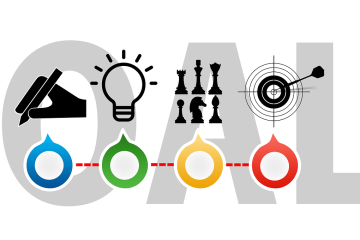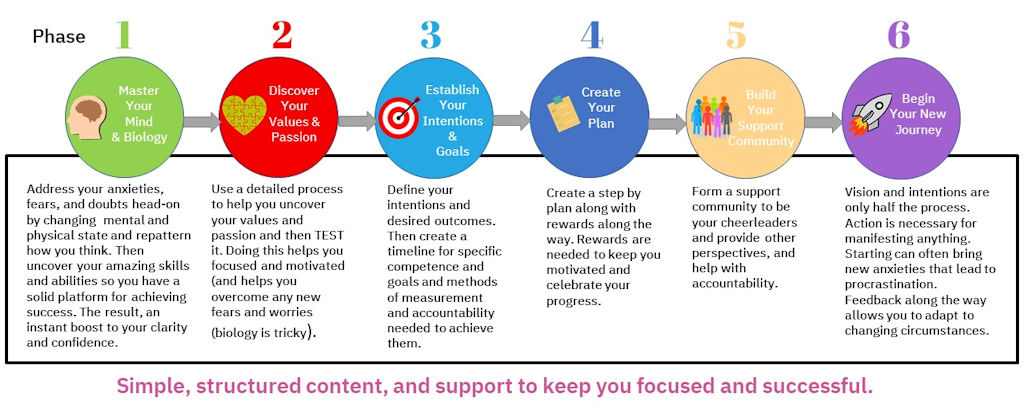When we explore why people differ and get different results in life, we will find that everyone has or has had a role model − someone who pointed the way, had a critical influence in our lives.
It usually begins with parents; but it could be a teacher, or mentor, or it could be life events and traumas along the way. And these have huge influences for our mindset.
The environments, narratives, or nurturing along with our some of the disposition of genes can have huge impact on our life satisfaction results approach to learning and more specifically our mindset.
Scientists are learning that people have more capability for lifelong learning and brain development than we thought in past history. Of course, each person has unique genetic endowment. People may start with a different temperament and different aptitudes but it is clear that experience training, as well as personal effort that takes them the rest of the way.
And we now know that the major factor in whether people achieve expertise is not some fixed prior ability but purposeful engagement. It’s not always the people who start out the smartest who end up the smartest.
And according to Carol Dewick the author of Mindset the New Psychology of Success, we fall in one or two camps: either a fixed mindset, or a growth mindset.
And the fixed mindset has certain characteristics such as negative thinking, limiting beliefs, or self-talk with negative overtones such as “I can’t”, “that’s just the way it is”, “I feel like a reject”, “I am a total failure”, I’m an idiot”, “I’m a loser”, “I feel worthless”, “Everyone’s better than me”. And unfortunately, this is the way they think about their lives.
“My life is pitiful”, “I have no life”, “Somebody upstairs doesn’t like me”, “The world is out to get me”, “Someone’s out to destroy me”, “Nobody loves me”, “Everybody hates me”, “Life is unfair”. The list goes on and on… These statements may or may not get us some attention or sympathy, however they keep is from our potential. They are the signs of a “fixed mindset” and a “victim mindset”. And fix mindsets or victim mindsets often think that it’s the outside world that’s the cause of all their ills or circumstances in life.
In contrast growth mindset individuals are more likely to see failure or things that don’t go right as opportunities to learn to grow; to evolve. Now don’t get me wrong that you don’t have to have one mindset or the other to be upset or frustrated. Those are natural human emotions.
Things like failing at something, getting a poor grade, or a rebuff from a friend or loved one are not fun events; yet those with a growth mindset approach things differently, when they occur. Rather than labeling themselves or throwing up their hands, they tend to be more optimistic and look at how they can move through the situation and learn from it and grow. Even though they feel distressed, they are ready to take risk, confront the challenges, can keep working at overcoming them.
And unfortunately, the fact is there’s a startling degree to which people with fixed mindsets do not believe in effort and they just won’t try. They don’t even take the first step or make the first effort to achieve what they profess to want. They dwell in frustration, anger, and complain.
What the research shows is that people’s ideas about risk and effort grow out of their basic mindset. And a growth mindset is worth the effort to develop and maintain.
It’s not just that some people happen to recognize the value of challenging themselves and the importance of effort, the research shows that it comes directly from a growth mindset. When we teach people the growth mindset with its focus on development the ideas about challenge and effort follow in a different direction. Similarly, it’s not just that some people happen to dislike challenge and effort. It’s a function of mindset.
What is really interesting is when we temporarily put people in a fixed mindset with its focus on permanent traits, they quickly fear challenge and value effort and avoid effort. In contrast, if you take people with a fixed mindset and develop a growth mindset, they take more risk they believe more in themselves and take actions that in the past they avoided.
So, as you begin to understand the fixed and growth mindsets you see exactly how one thing leads to another and how belief that your qualities, skills, or knowledge are not necessarily carved in stone. Mindset can lead to a host of thoughts and actions and you recognize how a belief that your qualities can be cultivated. A growth minds leads to a new host of different thoughts and actions taking you down an entirely different path in life than a fixed mindset.
Another striking reality is studies show that people are terrible at estimating their abilities. We have found that people greatly missed estimated their potential performance and their abilities. And it was people with fixed mindsets who account for almost all those inaccuracies. People with a growth mindset however are amazingly accurate with estimating their abilities.
What we find is if your oriented toward learning and growing you need accurate information about your current abilities in order to learn effectively. In fact, our Howard Gardener in his book “Extraordinary Minds” concluded that exceptional individuals have a special talent for identifying their own strengths and weaknesses. It’s interesting that those with growth mindsets seem to have that particular talent.
The other thing exceptional people seem to have is a special talent for converting life setbacks into future success and possibilities.
So, a fundamental message here is there’s a difference in the results, life fulfillment, and possibilities we achieve based on mindset. And mindset can be changed even a fixed mindset can move into a growth mindset. You can change your mindset. When you do, you change the results you get in life.
Anyone can adopt a growth mindset and make the impossible possible.
Nobody has to be a victim of their surroundings, their past, when developing their own mindset. The brain can be trained like any other muscle: if we want a growth mindset, we can teach ourselves to think that way one step at a time.
“Never be a prisoner of your past. It will be a life sentence.”
It is important to understand that a fixed mindset is not easy to kick. It has likely become an emotional crutch over the years: it protects us from failure, creates recognition in the eyes of our parents and partners, and boosts our self-confidence. It comforts us time and again, so getting rid of it can be extremely discomforting.
In truth, it is not necessary to give up a fixed mindset altogether. As long as we adopt the growth perspective in certain situations, it’s usually enough: even if a person believes he is a lost cause when it comes to sports, he could still be making leaps and bounds at work and other areas of their life.
There are benefits in doing so. A growth mindset person will create more opportunities and you will create opportunities that no one else sees. Opportunities are like busses, there will always another one coming along; especially when we are open to seeing them.
With a growth mindset, we can leverage the “The Law of Preparedness”. The more we growth and develop, the better prepared we are when opportunity comes along the greater the success we will have.
Whatever knowledge and skills we accumulate will eventually lead to opportunity and success when a potential opportunity comes along. Jumping at one without those skills will most likely lead to failure and frustration.
So, soak yourself in the growth mindset and be open to information, skills and abilities that evolve and you will be ready for and resonate with the events and opportunities that will come along. Sooner or later, you will get you the opportunities that you desire and deserve.
The person with the greatest and most diverse knowledge in an area will be the one that has the greatest luck in that area and dominates in that area. They will have the greatest integrated complexity; which you can added to as you go along. The more you know the more you grow and achieve.
The more you work on your mind, the stronger your mind becomes.
It all starts with mindset.
Your success grows only to the degree that you do.
Here is a simple formula that emphasizes the importance of mindset.
MPTFDA=R
Mindset and Perception fuels your Thoughts which fuels your Feelings, Decisions, and Actions which equals your Results.
Results all begin with mindset.
Is your blueprint − your mindset sabotaging your success and fulfillment?
A great blueprint is to be a “Mindset Maven”.
 Mavens are driven to learn. A Maven is someone who is experienced or knowledgeable.
Mavens are driven to learn. A Maven is someone who is experienced or knowledgeable.
And a “Mindset Maven” is driven to learn and leverage a growth mindset. Anyone can be experienced and knowledgeable, as well as more successful and fulfilled with a growth mindset.
Coaching and Support can be a great way to grow and shift one’s mindset. And coaching has been shown to have a 600% return on investment (ROI).



 Together we will use a proven process for success
Together we will use a proven process for success

0 Comments